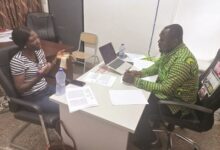The world this week is celebrating World Radio Day. The day was formally marked on February 13 by the United Nations General Assembly.
The United Nations Educational, Scientific and Cultural Organisation (UNESCO) declared February 13 as World Radio Day because on this day United Nations Radio was first established in 1946. Among other things, it is observed to preserve the importance of radio as well as to encourage decision-makers to provide access to information through radio.
The day is a celebration of the role of radio as a means of communication and expression. It is to help people to understand and appreciate the role of radio and how it has helped people to stay updated with the news. According to UNESCO, this year’s World Radio Day is to help more people to be aware of the importance of radio.
Against the backdrop of uncertainties, riots, commotions, conflicts and wars, the theme for World Radio Day 2023 as ‘Radio and Peace’ is timely and fascinating. It brings into sharp focus the role of radio as an independent medium of peacemaking. The sub-theme of the day is ‘Radio in Conflict Prevention and Peacebuilding’ and ‘Support to Independent Radio’ is also very significant.
By this theme, radio in Ghana must be used towards effective peacebuilding. Utterances of presenters and their guests must be ordered by high circumspection and decorum. Radio in Ghana must enhance the three mutually reinforcing dimensions: of national and community as security, peace in governance and politics to ensure a resounding social, economic and environmental.
One of the most powerful communication tools of the 21st Century. Despite the rise in social media and the emergence of the digital age, radio still remains one of the most powerful communication tools of the 21st century.
Radio news is faster than newspaper news. Radio news is presented moments after the news event occurs whereas newspapers have to wait for about 24 hours before they can publish the news to their readers. The language used in radio news is to-the-point and very concise whereas newspaper news is a little bit more detailed.
Across the globe and Ghana for that matter, radio plays a critical role in building peace in the minds of men. A more relevant theme wouldn’t have been appropriate on this occasion of the 12th edition of World Radio Day, than “Radio and Peace”.
In Southern Africa, radio still has the widest audience footprint, reaching millions who have no access to the Internet. Marginalized communities that are still developing depend on radio to receive information that influences their livelihoods. Community radio stations have been instrumental in peacebuilding as they reach communities at the grassroots level and use mother languages spoken locally.
In Ghana radio can be a key pillar for conflict prevention and peacebuilding in areas where conflicts have occurred. Currently, Ghana is struggling to solve a number of conflict situations paramount is what is happening in Bawku.
Radio stations in and around Bawku and places where conflicts have shown their ugly head to use local language and culture to bring factions to the table and help smoke the peace pipe. What politics and religion have damaged; radio must be there to repair.
When independent from political and commercial influence, radio must be able to tackle both root causes and triggers of conflict and stimulate democratic debate with its listeners. It is not radio flash reporting that contributes to conflict prevention and peacebuilding but rather radio professionals’ accountability to citizens,
The importance of World Radio Day is that it helps people to understand the power of radio as a device that can unite people, educate them, and provide entertainment. Over the years radio has had education, information, and entertainment as its primary function. Today, it goes beyond these laudable functions. Radio is used today to enhance peace among the citizenry, for development, and encouragement, as well as equipping people for national and international unity. Importantly, radio provides the platform for decision-makers to create and provide access to information by encouraging decision-makers to create and provide access to opportunities
Radio is undoubtedly a powerful medium for celebrating humanity in all its diversity and constitutes a platform for democratic discourse. At the global level, radio remains the most widely consumed medium. This unique ability to reach out to the widest audience means radio can shape a society’s experience of diversity and stand as an arena for all voices to speak out, be represented and be heard.
Again, radio stations should serve diverse communities, offering a wide variety of programs, viewpoints and content, and reflect the diversity of audiences in their organizations and operations. Radio, therefore, must be the most trusted media but what do we see today? Especially in Ghana.
In Ghana today, there are 31 public radio stations, five foreign radio stations, 119 community radio stations, 24 campus radio stations and 528 commercial radio stations. Much as it is appreciated that some of them are doing well by way of professionalism, ethics and considering the nation first, many of them are just making up the numbers while others just cannot be described as radio.
Media ownership and control have so much influenced the functions of radio in the country so much so that non-professionals have virtually taken over the once decent Ghanaian airwaves.
News reading is deemed as entertainment, especially on the vernacular-speaking stations. Opinions and commentaries are jammed with facts leaving the audience confused and disturbed. For sports news, the least said about it the better, forgetting that broadcast journalists must make a clear distinction between facts and opinion.
Unfortunately, such unprofessional radio presentations are gaining ground and it appears now to be a norm compelling some of the professionals to tow such unacceptable lines for fear of losing their audience.
Breaking news reporting is mercilessly handled under the pretense of the fact that news can be reported more quickly on radio than in newspapers or on television because the technology is simpler.
By ethics, radio journalists and presenters must broadcast, and comment on, only information that has been confirmed as true and which comes from a reliable source. Journalists should avoid concealing information which is important to the public and wittingly distributing false information which they presume would interest their audience.
Radio presenters in Ghana today do not hide their religious, or political affiliations and even what football teams they support. Ethically, these are wrong. The religious and other beliefs of radio presenters should not influence the objectivity of radio news stories and programmes.
At certain times in Ghana, it is the radio presenters and their guess who by their utterances in one way or the other, disturb the peace of the country. If media owners will employ professionals, train and retrain the “ready-to-learn” ones, radio would rally bring peace and sanity to our society.
BY NANA SIFA TWUM (PHD)




